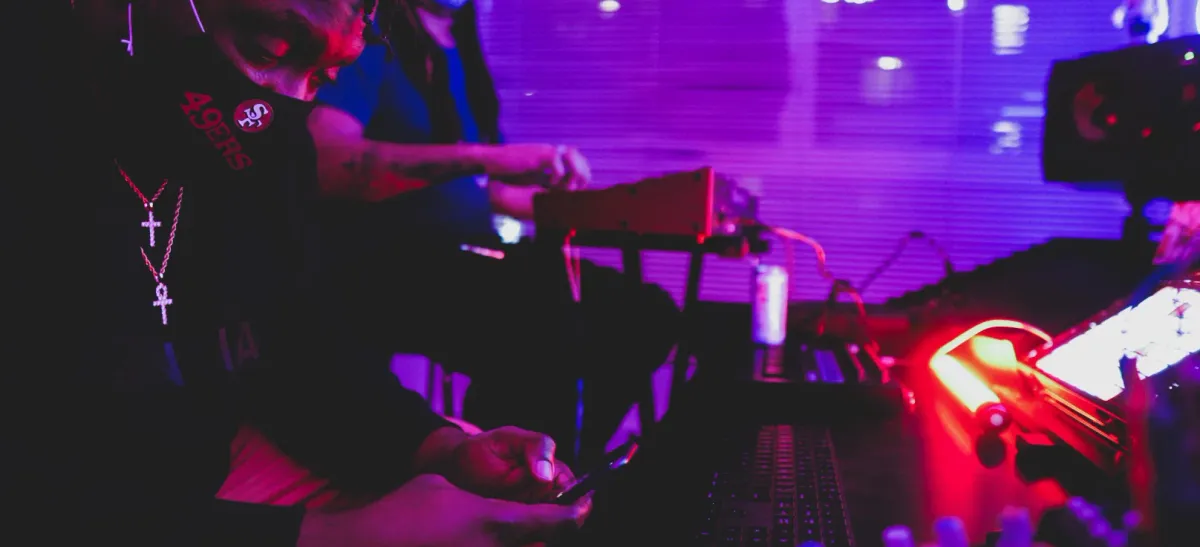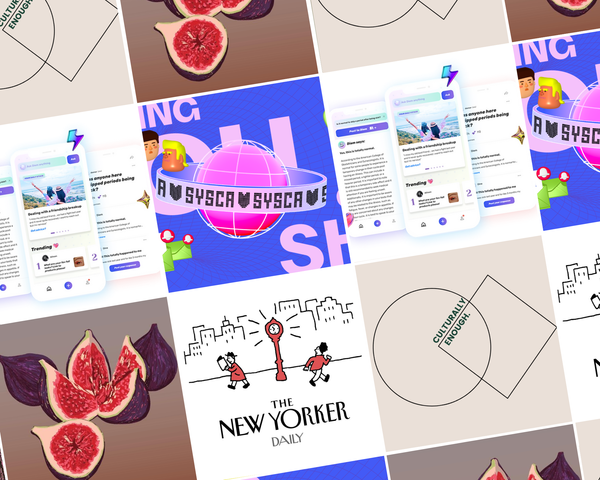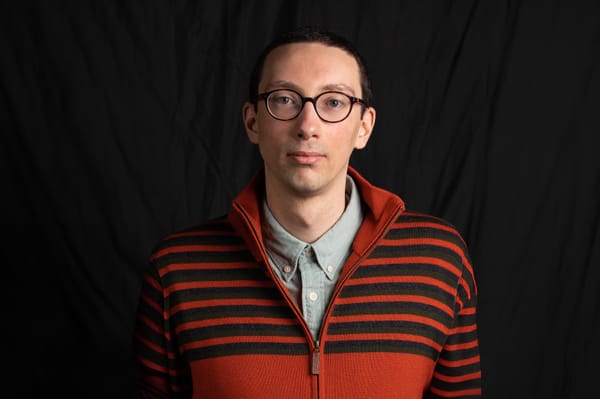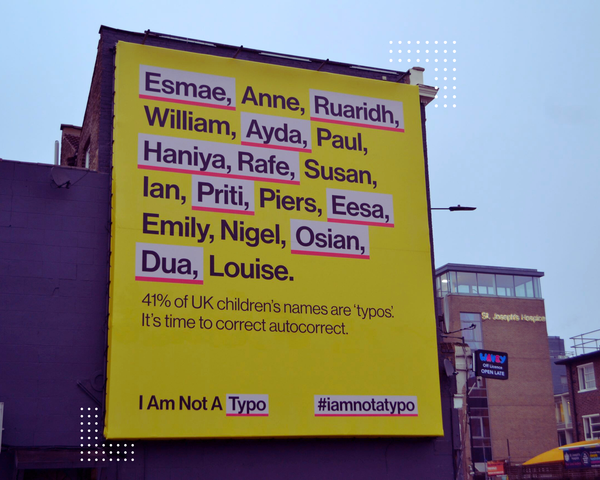Heartbeats: Sleep Deez on Blurring the Lines in Music, Finding Success and Inspiration in Lockdown, and Shaking Up the Industry
We’re kicking off Heartbeats, our new music section, with an interview of Sleep Deez, Grammy nominated producer for BTS, Black Eyed Peas, Rihanna and Usher, and many more.

Access the Audio Read version of this article directly on Spotify for Podcasters.
"It all came from just not being arrogant, following my gut, doing projects that not everybody was pursuing, me making music just to make music."
We’re kicking off Heartbeats, our new music section, with an interview with Sleep Deez, Grammy-nominated producer for BTS, Black Eyed Peas, Rihanna and Usher, to name a few. The multi-platinum hit-maker shared his thoughts on his career and the music business – and his advice for aspiring artists from marginalised backgrounds.
This interview was recorded on 13th August 2021. Click our Audio button to listen to the full interview on Anchor.
When we started what turned out to be an hour-and-a-half-long conversation, Sleep Deez, whose real name is Deryk Mitchell, explains he is, in fact, very much awake: “My grandma started calling me Sleepy when I was a kid and it became a family nickname, cause I have sleepy eyes – everybody thinks I’m sleepy all the time, but I’m not.”
A legend in his own right, with hits produced for a multitude of artists from Black Eyed Peas to Rihanna, Sleep Deez has turned down a lot of interviews since the release of BTS’s My Time in 2020. The song, a solo performance by main vocalist Jungkook, debuted at #2 on Billboard’s Digital Song Sales chart, and is part of the Korean band’s Map of the Soul: 7 – an album that was awarded platinum certification by the RIAA that same year. At the time of writing this article, the song had recorded over 135 million streams on Spotify, and was charting #8 on the same chart, after spending 72 weeks on it.
Deez explains there are multiple reasons behind his apparent media shyness. One of them is a justified sense of wariness towards the US press and its taste for sensationalism. “I just don’t ever want to be a victim of that, and I don’t really care,” he explains. He is however generous in details during this interview, as well as in a handful of independent publications and student projects, and social media – where he connects with fans directly, regularly sharing anecdotes about his work and invaluable inside tips for anyone wanting to work in the music industry.
Sleep Deez has had quite the year, between the explosion of My Time and a sudden exposure to millions of fans across the globe, all the while experiencing the rise of Covid in America – and consequent lockdowns. “I feel very blessed,” he shares. “I get to wake up and come downstairs and make music for a living, and I’m very blessed as it all happened during a time that was tough for so many people”. Map of the Soul: 7 came out a few weeks before LA went into its first lockdown and crushed any hopes for concerts for the foreseeable future, and while he shares he sometimes feels guilty about it, he does see the timing of it all as both “a gift and a curse”.
The outbreak of the virus ironically gave him the gift of time, and the opportunity to truly connect with fans online – “a blessing in a dark situation”, and something he may not have experienced had his busy schedule remained the same. “I think I went five months without seeing anybody during the top half of the pandemic,” he says, “and all I was doing everyday was going on Twitter, and talking to people who said they loved the song.”
Similar to the song healing fans throughout their own lockdowns, interacting with them became a refuge for Deez, who received messages and videos from all around the world. “It got me through some rough days when I was stuck in the house and wanted to be somewhere else, just anywhere but here,” he recalls.
Over a year later, Sleep Deez still engages with fans daily, and enjoys hearing people blasting the song around the city once in a while. “I didn’t anticipate any of this to this capacity,” he says. “Mostly, when you’re a producer, people care about the song, but they don’t really care about the creative side of making it so much, so it’s been amazing.”
When we talk about My Time, it is clear that the record holds a meaningful significance for him just as much as it does for the fans. “I wanted to try to do something that was different,” he says. “I like the contrast, to do a song that feels sultry, sexy and R&B and has this bounce to it, and at the same time there's this real story: this kid is telling a story about how he feels.”
The process was “seamless and tasteful”, and doing so with and for superstar Jungkook to mark his unconventional and highly scrutinised entry into adulthood, was a producer’s dream: “I’ve always wanted to make a record that successfully transitions someone from a child star to an adult, because it’s actually difficult, and a lot of the time it’s radical.”
The song mixes a retro R&B beat with eighties-sounding electric guitar riffs and impeccable vocals, sung in Korean and English. But blurring the lines between genres and cultures doesn’t scare Sleep Deez, who views music as language – and an opportunity to continuously help create new stories within the restriction of twelve notes. “One of the funny things that happened is that I'm now called an R&B producer for the first time in my life, when for so long everybody called me a pop producer,” he says. “It is cool, especially for some of the things that are coming next. There will be anticipation because people will want to hear what I’m doing, but it will also not be what they expect, and I’m interested to see if they will love it in the same way. I think that they will.”
When asked about his upcoming projects, Deez shares that he’s working on his album, which should be out at the end of the year. The framework for one of the tracks was started in 2013, as an experimental project, and revisited this summer. “Something about the sound of it made me think that I would do something with it one day,” he says. “I had a whole concept for it while I was living in New Zealand. Then last year, during the pandemic, when I was finally able to get into a space of creating, there was a huge element that was missing, which for me is either travelling or just going out and meeting new people.”
Sleep Deez explains he writes and finds inspiration from hearing people’s stories, taking “bits and pieces” from their lives, but has also written songs based on the relationship of two characters in a movie, and what he interprets it to be. One of them is Baz Luhrmann’s Romeo + Juliet, and its iconic aquarium scene. “Not being able to go out was stifling, creatively, so once I was able to get into a flow, I thought I’d work on this album and put it out on my birthday,” he says. “I had a whole photoshoot and video shoot scheduled at a roller rink up the street, and then we went into our second wave, and everything locked down, so I kind of gave up.”
Sleep Deez went on to hand the album over to his team, who started “shopping the records around”. The exact day he decided to pick the project back up, his business partner had news: four out of the seven songs on the album were getting picked up. His first two singles had been placed on a big artist in China, another song ended up going to Normani, and the fourth song generated interest from BTS. With half of the album gone and his creativity flowing again, he decided to make more songs. “There was fresh energy because I was collaborating with people,” he says. Vaccinated and finally able to meet with friends to make music together, Deez replaced the songs. “I came up with some really good material, and I’m excited to put this album out. I think people will be very surprised.”
It’s hard not to talk about the pandemic, because it had such a significant impact on all of us for the past year – and presented an unprecedented challenge for the music industry. But the lockdown had its own way to help him find resilience and new avenues for inspiration, as Sleep Deez recalls. Having accumulated years of experience working on his own, creating from ‘that place’ wasn't really a problem, at least not as much as being able to top his previous achievement. “I remember for the first couple months when the album (Ed: Map of the Soul: 7) came out, I couldn't even come up with anything that I found special – but eventually you just get back to work, you get back to business,” he says. “Whenever I get stuck, that's when I start to move around genres. If I’m not doing anything I like over here, then I’ll start making hip hop beats for two weeks. Once I get tired of that, I move back to pop records, or move back to playing the piano”. Just like the rest of us, Deez also got into plants and home cooking, and getting creative in other ways unblocked the musical flow.
When we discuss the future, Deez explains he’s interested in film scoring, and in particular composing music on the piano, conducting orchestras and blending more genres, but he envisions this new step happening in his career “four, five years down the line”. He played the piano as a child, but got interested in music production after hearing Still D.R.E. by Dr. Dre and Snoop Dogg for the first time in the nineties – a “transformative” experience. “There’s so much ear candy in that song, and it’s subtle. When you hear it now, it’s ageless,” he says. “I remember sitting in the back of the school bus, the guys in the back freestyling and having a good time and roasting each other, and I was in the middle seat of the back row, and I couldn’t hear anything else but that track – everything else just went silent. That was definitely special.”
Other influences include Aaliyah’s Try Again, produced by Timbaland, which inspired him to create his own sound early on. “When people tell me My Time sounds different, it’s really one of the best things that’s happened in my career, because the producers I looked up to when I was growing up - Dr. Dre, Mannie Fresh, Pharrell, and the Neptunes - they all had a unique sound.” He explains he also owes a lot of his early musical inspiration to his parents. “There was so much funk and soul playing in the house growing up. My dad was a big funk fan, loved a lot of jazz, and my mom loved R&B.” He shares that Quincy Jones is also one of his biggest idols after his father – who passed away in 2010.
Sleep Deez is a music lover before anything else, and an advocate for artists’ rights, which led him to create a disruptive app that was fair for musicians, in 2011. The app would pay artists for their work on a daily basis, and for streams in 30 days. “No one was doing it at the time,” he says. Some of the app’s features were building a royalty map, and the option to create your own page – in a similar way to Myspace. When they got to the acquisition stage, the deal fell through, with Deez left with a bunch of IPs he says he isn’t doing anything with at the moment. “The tech was always about me loving music, but hating the music business,” he says.
The project certainly did not come without hurdles. “Watching how many people got nervous about it and wanted to block us, and getting threatening emails… that let me know we were onto something,” he says. But for a lifelong “music kid” like Sleep Deez, the whole experience felt like having a corporate job, and made him realise just how much he missed making music – yet he still wants the industry to change. “I’ve been in the music business for 18 years,” he says. “This is my life, so I care about it, and I want things to be more fair in the art.”
Deez then went on to do “his own thing”, starting a personal discovery journey that would soon pay off. ”I was just letting myself go with the flow,” he says. It led him to work with Youtuber Jake Paul on a rap song (Ed: It’s Everyday Bro) for his subscribers, one of the first songs in history to go platinum solely from Youtube streams, and with G.O.A.T. singer Eric Bellinger, one of his favorite independent R&B artists. “These are projects I went into with money not being the motive at all,” he says. Making himself available for new types of projects ultimately brought him to South Korea, where he met BTS leader RM around 2015. “It all came from just not being arrogant, following my gut, doing projects that not everybody was pursuing, me making music just to make music,” he explains.
Today, Sleep Deez still works with new and independent artists, regardless of fame. “I tell young producers all the time that the preparation has to be the same,” he says. “If you’re gonna work with Beyonce or a brand new artist trying to break into K-pop, you should treat it the same, because at the end of the day, you never know how big a song is gonna get, or how far it’s going to reach. Every time you do a record, that’s your name, your brand, and your reputation attached to it - and Beyonce was not always ‘Beyonce’.”
Deez is proud to believe and invest in artists early on, giving them the help they need without large fees involved. With American K-pop singer Rakiyah, BTS songwriter Rẋ and SuperM songwriter Geoffrodamus, all Black creatives working in the same space, he held a work camp in August 2021. “I remember being the youngest guy in the studio,” he says. “Just going from that to being the oldest person in the session, and the most accomplished in the session, and everybody looking up to me hoping they can get to where I’m at, I think that’s really cool.” When we talk about new and upcoming artists, Sleep Deez gets excited and shares that there are many he wants to produce – starting with Symba, a rapper he worked with on one of his early mixtapes, and who recently got the lead song on the new Space Jam: A New Legacy soundtrack. But even if a new collaboration was not to happen, Deez shares he’s simply happy he could help in any way. “I get enough satisfaction knowing that I may have given someone confidence when nobody else was,” he says.
Even before the monumental success of My Time, Sleep Deez has always mentored, but does so now with more reach – sometimes even gifting aspiring producers with equipment and invaluable advice after a quick Twitter exchange. He shares that he is thinking about teaching, and trying to find a way to make the project as accessible and sustainable as possible, without costing much for students. “I would rather find some sponsors, as opposed to charging people,” he says. It ultimately goes down to giving back, and giving that extra push to young people who may need it, to show that a career in music is possible. “My dad once told me to always try to be the person that you wanted in your life during that time,” he says. Deez himself had someone to show him the ropes when he was younger, no other than Grammy award winner Printz Board, Black Eyed Peas’ former keyboard player and producer who co-wrote the band’s hits "Where is the Love", "Don’t Phunk with My Heart" and "Meet Me Halfway" – one of his collaborators on My Time. “He opened up my eyes to how big the world is,” he explains. “Before him, I didn’t realise you could make music in Germany, New Zealand and South Korea, and make a nice liveable wage making music for artists in different languages. He took me to all these places, was the first person to take me out of the country – sometimes, things like that are bigger than what someone could do for you directly, like teaching somebody how to fish, in a sense.”
But the music business is not always kind to young artists, and Deez knows it. When it comes to the things he would like to change in the American industry, and specifically to make this a better environment for Black creatives, he explains it starts with cultural equity, and giving proper credit for Black people’s contributions to culture – from music movements to viral social media trends. “By the time they become mainstream, the creators don’t see anything from that,” he says. “We see it happening all over again, and now we see it with Tiktok – all these young Black girls and teenagers who are making up all these dances, and they get nothing for it.”
At times, Deez himself gets push back online while promoting his own work. “People will call you out and say you’re ‘chasing clout’,” he says. “But I don’t have a PR team, and I still have to talk about the records when they come out. Nobody else is going to advocate for me.”
When we discuss the treatment of artists, Sleep Deez identifies discrepancies between the US and Korean sides of the music industry. Having worked with both countries, he points out that one of the major differences is that music executives in the top Korean labels tend to be songwriters or producers themselves, unlike in America. “It’s very weird to me that I meet multiple people in this business who are not music heads,” he says. “How do you work in this business if this is not what you love, if this is literally just a product to you?”
He also explains the industry’s issues by the disparity of power between parties from the start: “If you don’t have anything, and someone dangles a thousand dollar check in your face, nine times out of ten, and especially before the information age, you’re gonna take it, not knowing that you’re signing over your name and all your rights”. Deez calls the MDRCs (Ed: Minimum Delivery Release Commitment) as “one of the worst things in music”, and shares he never signed one, despite multiple offers. “The fact that it lasted so long, it never made sense to me,” he says. “There are a lot of bad practices that were based on a business model that is no longer relevant.”
The industry has certainly changed since the era of “DIY music”, with more artists owning home studios and less dependent on labels. But the business still needs more fairness for the people who actually make the music, according to Sleep Deez – who quotes T-Pain’s recent revelation that record labels made $17Bn in 2020, while the artists themselves only made 12% of that amount. “If the artists only made 12% of it, how much do you think songwriters and producers made?” he asks.
He views the industry as a tricky business, one he had to grow thick skin to survive in. “You have to be a little bit meaner, a little sharper, a little more affirmative, because you live in a world where you’d think giving respect should be everyone’s natural state, but in this business, in this city, if you’re not demanding respect, not only will people not give it to you but they will actually try to take the respect that you have for yourself.” However, Sleep Deez has advice for young and aspiring producers – especially if they come from marginalised communities. “Focus on your skills. I think younger people today are used to instant gratification; everything feels instant. But this is not,” he says. “The more valuable you can become, the more rooms you will be able to enter. Skills pay the bills.”
He warns about “just signing anything to the first person that comes around”, but insists there’s “plenty of room” for people of colour who want to get into music. “It’s a welcoming business – I think a lot of people might feel discouraged because it is such a tall mountain to climb, but if it was easy, everybody would do it,” he says. “I would tell marginalised people in particular: don’t just be happy to be here. If you feel like you deserve this, ask for it. Because that’s what other groups do. I get it, because you feel like this could be your one chance and you don’t want to rub any feathers, but it’s better to have these uncomfortable conversations early than later, and if that conversation is enough to remove you from a situation, then it wasn’t the right situation for you.”
Sleep Deez also advises to build relationships and be collaborative with people “who are at your level” while climbing up the ladder, just like he did. He grew in the industry along with the friends he made in 2007, when he moved back to LA – some of them are Omar Grant, co-president of Roc Nation, Gary Leon, manager of Urban A&R at Atlantic Records, DJ Mormile, VP of Def Jam, and J. Angel, who wrote Love on the Brain for Rihanna. “We share opportunities with one another, because there’s been over a decade of social rapport that’s been built over the years.”
In fact, one of his friends recently sent him a brief from a big K-pop label, which featured several of his songs (BTS’s My Time, as well as Eric Bellinger’s G.O.A.T. and Island), asking for a similar beat, yet the label never contacted him directly. Deez shared his thoughts on the incident with his Twitter followers, instantly sparking a conversation online about how often industries steal from Black creatives – something he says has been a constant hurdle in his career since the Black Eyed Peas era, and the third occurrence this year. “There’s a pattern,” he says. “And I’m very easy to reach.”
If using a song from another artist in a brief is common practice, using three songs out of five “feels a bit weird”, says Deez, who didn’t know whether he should feel flattered or annoyed. “You don’t want to make everything about race, but you wonder,” he says. The friend who sent him the brief had just made a pop record for Dua Lipa, far from the ‘urban’ vibe present in the brief. “I can’t say definitely what it was about, but I do think it was interesting. There’s a lot of things that I’ve done where I’ve wondered if I was not Black, what the reaction would have been, or the amount of press opportunities I would have been given.”
While Deez doesn’t throw shade at other creatives, he does recognise that artists may be treated differently by executives based on what they look like. “There are things that I might do and nobody’s surprised, but if someone else does it, then it’s like the coolest thing in the world.” But in a business that is so difficult to navigate, Sleep Deez has created his own space and shares it willingly with others, creating an extraordinary legacy, and fast becoming a role model for his artistry and honesty combined – one that will be hard to match.





